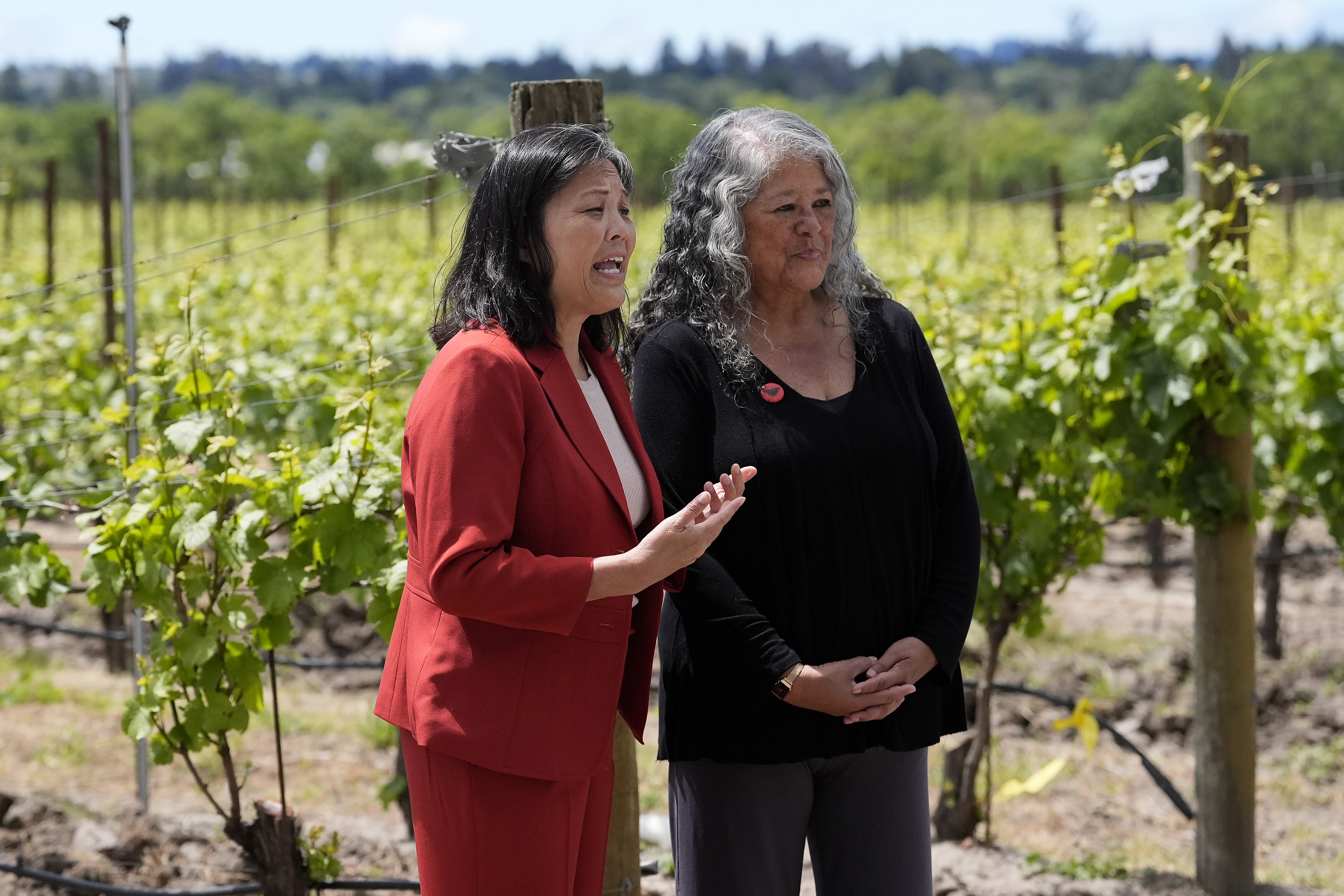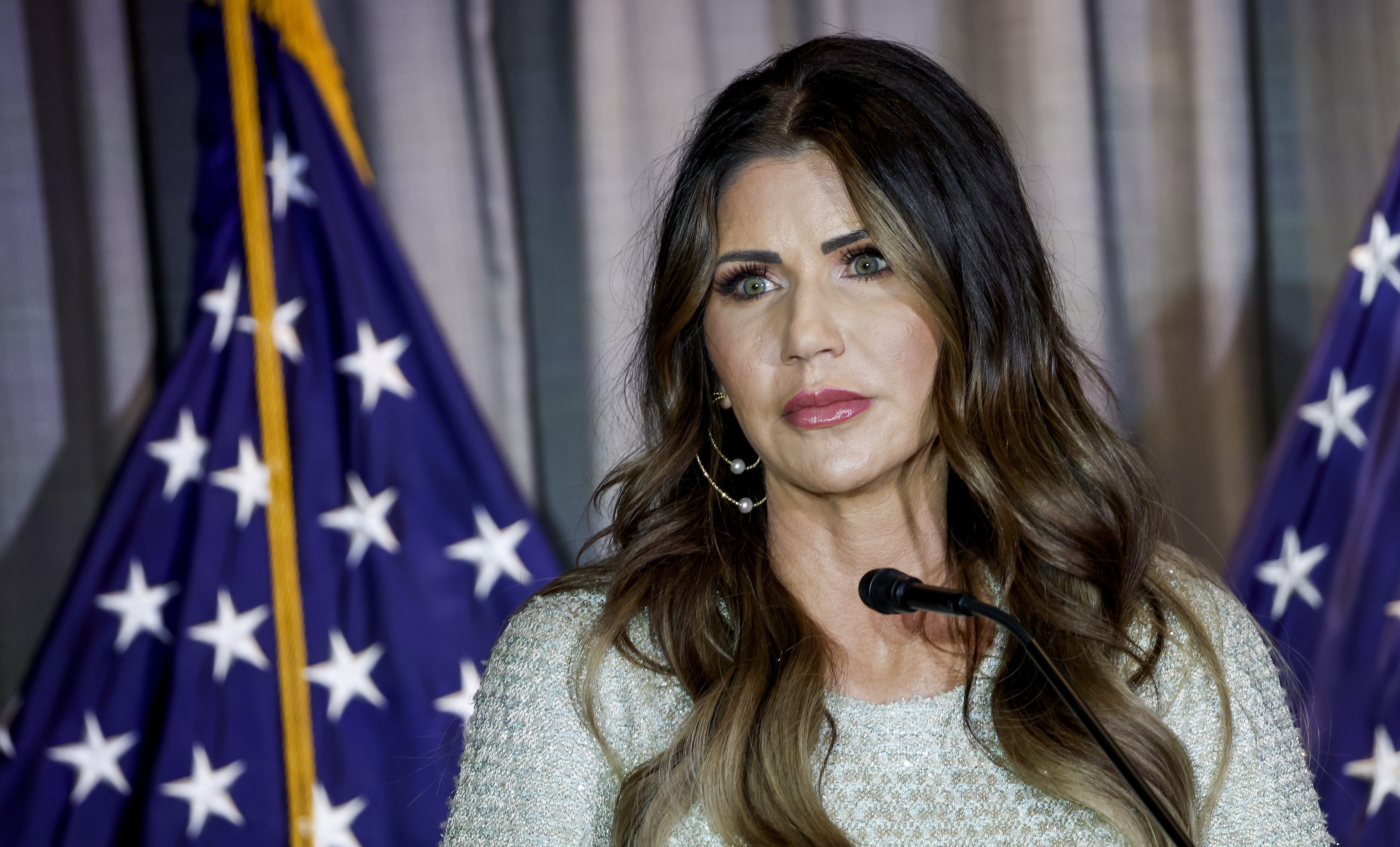A documentary on teenage climate activist Greta Thunberg, making its premiere Friday at the Venice Film Festival, is seeking to remind a world consumed with the coronavirus crisis that the climate crisis is just as urgent and isn’t going away.
Thunberg appeared by video conference from school on Friday for the launch of “I Am Greta,” which is screening out of competition at Venice. The film follows the Swedish environmentalist from the beginning of her school strikes in Stockholm to her low-carbon travels around the world demanding that political leaders curb emissions.
The film, shot and directed by Nathan Grossman, contains never-before-seen footage of Thunberg’s harrowing two-week sailing journey across the Atlantic to speak at the U.N. climate conference in New York in 2019. At one point in the voyage, undertaken to avoid the carbon footprint of flying, Thunberg cries out that she’s homesick and misses her dogs.
“It’s so much responsibility,” she wails, as the high-speed ship slams into the waves. “I don’t want to have to do this.”
Get New England news, weather forecasts and entertainment stories to your inbox. Sign up for NECN newsletters.
Even though the film follows the #FridaysForFuture mass demonstrations that Thunberg launched through 2019, the era feels like a lifetime ago given the current COVID-19 pandemic and restrictions on big assemblies.
Thunberg, now 17, urged the world to not forget the climate crisis and said the environmental campaign continues “in the way that is the most safe and that doesn’t put anyone at risk, in line with COVID-19 restrictions of course.”
In Stockholm on Friday morning, for example, she was out there striking before school, wearing a facemask and socially distanced from others. Thunberg returned to school last month after taking a year off for her activism.
U.S. & World
Grossman had remarkably close access to Thunberg and her family as she was becoming an international media phenomenon, and the end result is a film that provides a much fuller, emotional portrait of an ordinary yet at the same time extraordinary teen.
Filming behind the scenes during the Atlantic crossing and long train trips to European capitals, Grossman shows a Thunberg who cries, struggles translating a phrase into French and gets frustrated with her father, but who then holds her own in the halls of power.
The film debunks some of the criticisms of Thunberg, showing her writing her own speeches and making clear she was the driving force in the campaign, not her parents or other environmental interests. At the same time though, it makes viscerally real the pressures that were allowed to accumulate on her as the movement grew.
Thunberg said she appreciated that Grossman didn’t further what she said was the stereotype of her as “the angry, naive child who sits in the United Nations General Assembly screaming at world leaders.”
“That’s not the person I am,” Thunberg said. “He definitely made me seem more like a shy, nerdy person, which is the person that I am.”
Grossman for his part, said Thunberg had only a few requests when he showed her the finished product, asking only to add more — which he couldn’t do for space reasons — but not asking to cut anything.
Thunberg said she didn’t really notice Grossman’s presence, and in fact sometimes wondered what he was up to since he was doing everything himself.
“It was not very professional,” she said of his low-frills film-making project. Speaking directly to Grossman, she said: “Sometimes I actually doubted, since you said this might be something big. And I said ‘Why don’t they send like a sound guy or anything, or why don't they have more professionals?’ So I think maybe on some level I doubted the seriousness of the project.”
But now that it’s out, Thunberg said she was pleased with the end result.
And then she excused herself to go back to class.



